There is nothing like knowing you have options.
Find out more about the pros and cons of living in Vietnam to find out if settling here is right for you.
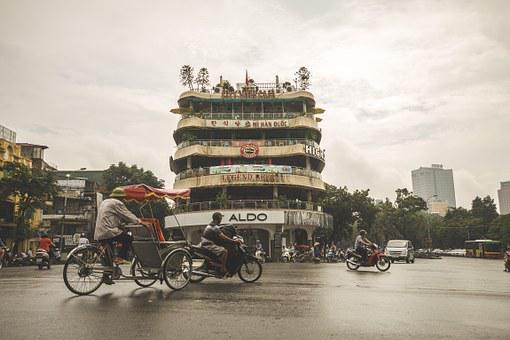
Contents
- Pros of Living in Vietnam
- 1. Easy to Get Around With No Car
- 2. Convenient Intercontinental Travel
- 3. Diverse Food Options
- 4. Plenty of Jobs
- 5. Plenty of Activities (Things to Do)
- 6. Affordable Place to Live (If You Make Enough Money)
- 7. A Noticeable Coffee Culture
- 8. Fun Night Life and Karaoke
- 9. Remarkable Landscape Vantage Points
- 10. Plenty of Sun
- Cons of Living in Vietnam
- 1. Complicated Work Visa Process
- 2. Language Barriers (Unless You’re Fluent)
- 3. Crowded Place (Too Many People)
- 4. Too Much Littering And Pollution
- 5. Noisy Construction
- 6. Chaotic (But Calculated) Driving
- 7. Unstable Electrical Power Performance (Some Areas)
- 8. Nightlife Noise Could Keep You Awake
- 9. Mosquito Diseases
- 10. Dangerous Areas
- Pros and Cons of Living in Vietnam – Summary Table
- Vietnam Safety Overview
- Frequently Asked Questions
Pros of Living in Vietnam
1. Easy to Get Around With No Car
You do not need a car to live in Vietnam.
You also will not have to feel out of place or “less than” other people if you do not have one.
The most common mode of transportation is the motorbike, and ex-pats (long-term foreign residents) can even rent a motorcycle for a day.
Vietnam also has local trams, buses, and subways.
What is more, you can ride a long-distant train throughout the country.
2. Convenient Intercontinental Travel
It is not difficult to find affordable airline travel to other countries in Asia besides Vietnam.
Several international airports are found here, including the Noi Bai International Airport and the Tan Son Nhat International Airports.
3. Diverse Food Options
Many of the Vietnamese dishes you eat have vegetables in them.
You can even turn a meal that normally has meat in it into a vegetarian one, and it will still have a full flavor.
Not everything is made with just rice either.
Enjoy spring rolls, dumplings, a variety of soups, and street foods.
You’re not limited to just Asian food in Vietnam, however.
The country also features food from neighboring Pacific Island countries and locations around the world.
There is a chance that you can even find a restaurant that prepares food similar to what you are used to eating.
For instance, they serve pizza, hamburgers, French fries, and more.
4. Plenty of Jobs
If you are interested in moving to an Asian country, you shouldn’t have much of a problem finding a job.
It seems to serve as a hotspot for commerce.
One of the top growing roles is working as an English teacher, and you could also run an outsourcing company or a call center.
Otherwise, find jobs in healthcare, hospitality, or in your current field if you have enough experience.
5. Plenty of Activities (Things to Do)
You will never run out of things to do in Vietnam.
For instance, you could hike near the Ban Gioc waterfall, climb rocks at Ha Long Bay or Hanoi, or explore the Han Son Doong Cave.
If history is your thing, you could also visit the Vietnam Military History Museum in Hanoi and the War Remnants Museum in Ho Chi Minh City.
A significant memento found in the Military History Museum is The Flag Tower of Hanoi.
This museum, by the way, is near the Ho Chi Minh Mausoleum and across from Lenin Park.
You could also go kayaking, boating, fishing, and more.
If you arrive in Vietnam and want to celebrate the country’s New Year, you could participate by lighting a lantern of your favorite color in Hoi An.
Every year, this location lights up lamps of different shades for its famous Lantern Festival.
6. Affordable Place to Live (If You Make Enough Money)
Bear in mind, locals-only make between 3.45 million VND and 6.2 million VND per month.
This equals approximately $150-$265.44 USD.
A “decent living” in this country is about $7.3 VND, which equals $312.53 per month.
If you make even a little bit more money than this per year, you will be doing good when you enter Vietnam.
However, you have to figure out the complicated work visa system to make it possible, such as if you were to start an outsourcing business.
7. A Noticeable Coffee Culture
It is common knowledge that Vietnam knows its coffee.
You don’t always have to pay much for it either, as the Robusta beans they typically use come cheap.
They also have a vast selection of Arabica beans, such as the ones from Da Lat, Ethiopia, or Colombia.
The people here drink coffee in a variety of ways, such as either cold or hot or with or without milk.
What is more, they have turned coffee into a cultural activity, and coffee breaks seem to be the highlight of their day.
If you love coffee, you will fit in well living in Vietnam.
8. Fun Night Life and Karaoke
Karaoke is big in Vietnam, and people love to find the next best club.
They are often happy underground and on rooftops, and nightlife-celebrating happens in hidden alleys.
Phu Quoc, Da Nang, Hanoi, Ho Chi Minh City, and Halong Bay are some of the liveliest places to have fun after hours.
It’s important to integrate yourself with the locals as much as possible when living in Vietnam.
However, you can also spend time in ex-pat communities, such as the one located in An Thuong.
That is where many of the foreigners hang out together.
It is good to experience both the local and ex-pat social scenes.
9. Remarkable Landscape Vantage Points
If you choose to settle in Ha Long Bay, take some time to appreciate the tall limestone rocks that emerge from the rising waters.
It is a leisure boaters’ dream here, and you can rent rides to and from Halong Bay to Bai Tul Long Bay, which is quieter and remoter than Halong.
Bai Tul Long also has some caves you might want to explore.
Its beaches are not very crowded either.
Landscape vantage points you do not want to miss include the Ngu Lam Peak located in the Ca Ba National Park and the colliding waterfalls of Quay Son River in Gioc.
In Da Nang, you can appreciate both art and nature.
The Golden Hands Bridge is a wonder of its own, with two hands literally holding up a walking bridge.
Look around you when walking this route.
You will notice where the forested Ba Na Hills meets the sky above it.
If you have the chance, take in the Fansipan, Pu Ta Leng, Pu Si Lung, or Tay Con Linh mountain views along different trails too.
10. Plenty of Sun
You might hear of monsoon rains that cause floods and hurricanes.
However, this area does have more sunny days than wet and monsoon ones – or at least most of the time the inclement weather doesn’t cause too much damage.
The most stable, sunny weather here occurs between May and October.
However, you also can enjoy the cooler months of March and April, where you will find days still higher than freezing temperatures.
You do not have to dress in as many layers here during colder times.
If you are looking forward to a little rain to cool you off, you will like the months of July through September, which produce more rainfall.
Cons of Living in Vietnam
1. Complicated Work Visa Process
You need as much identifiable documentation as you can.
There is no guarantee that your application will be approved either.
Apply as far in advance as possible.
Read this information from the Vietnam Embassy about work visas.
2. Language Barriers (Unless You’re Fluent)
Learn as much Vietnamese as you can before you arrive.
Otherwise, you will find yourself frustrated.
However, that is true of any place you go, unless they also speak your language.
3. Crowded Place (Too Many People)
It is not as population-dense as Macao, Singapore, Hong Kong, Maldives, Bangladesh, South Korea, and India.
Several other countries also have a denser population than it.
However, it still ranks as the 11th most crowded of about 28 Pacific Asian regions.
About 311 people per square mile live in Vietnam.
What you might find the most frustrating is all the people at some of the most popular beach spots.
However, you could check out more remote areas, such as Quy Nhon Beach.
It still has the white sand and see-through, blue-green ocean water without as much of a crowd.
4. Too Much Littering And Pollution
Sometimes, you might think it is a foggy day in Vietnam when it is really smog (smoke from factories).
Vietnam’s air quality is one of the worst in the world, especially in Ho Chi Minh City.
More than 60,000 deaths occur per year because of it.
To protect yourself, you might need a breathing mask or nose filters.
The reason for poor air quality is the country does not have the means to set up an effective enough filtering system.
People also throw empty beverage containers and food packages and other litter on the ground.
You will probably notice it when you are walking, even on what is supposed to be a nature trail.
5. Noisy Construction
Construction is inevitable wherever you go, but it seems to be a problem unique to Vietnam.
Some urban areas never seem to stop developing, which means not as quiet of business space as you would like if you do work there.
6. Chaotic (But Calculated) Driving
When you first arrive in Vietnam, you might not be used to the motorbikes whizzing by in traffic.
However, the chaotic driving here does have a calculated flow.
It is as if people have learned a dance routine, but it does have its scary, potentially risky moments.
7. Unstable Electrical Power Performance (Some Areas)
One area where this might occur is in Da Nang, where construction teams do their work.
If you live in areas that have more frequent blackouts, you might want to invest in a backup generator.
Sometimes, the outages last for a few days.
8. Nightlife Noise Could Keep You Awake
Vietnam provides plenty of social opportunities, even if you are not a native.
However, the noise at night could keep you awake, which may not suit you if you have an early morning shift.
You could always work the second shift, however.
9. Mosquito Diseases
It is not as prevalent as during the 1963 breakout or the million cases reported from 1998-2010, but dengue still does exist.
You can take precautions, however.
The country also deposited natural bacteria into the area that feeds on the mosquitos.
This reduces the ability of mosquitos to infect people.
10. Dangerous Areas
Most cities have their best and worst neighborhoods, just like anywhere else in the world.
The highest crime rates against tourists occur in Ho Chi Minh City or Hanoi.
Watch out when near a bus, train, and train station.
You also need to take precautions near seaports and airports.
Watch out for the presence of organized crime too, which occurs in Ha Long City and Haiphong.
High rates of racketeering, smuggling, prostitution, and drug dealing happen here.
Beware of tourist scams also wherever you go.
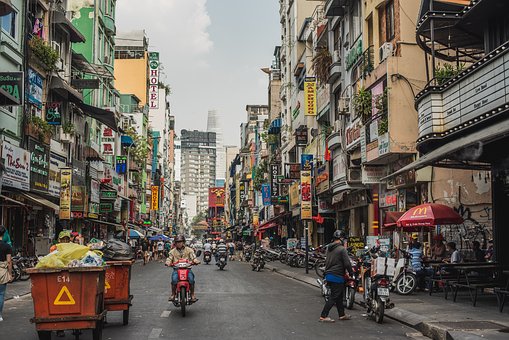
Pros and Cons of Living in Vietnam – Summary Table
| Pros of Living in Vietnam | Cons of Living in Vietnam |
|---|---|
| 1. Easy to Get Around With No Car | 1. Complicated Work Visa Process |
| 2. Convenient Intercontinental Travel | 2. Language Barriers (Unless You’re Fluent) |
| 3. Diverse Food Options | 3. Crowded Place (Too Many People) |
| 4. Plenty of Jobs | 4. Too Much Littering And Pollution |
| 5. Plenty of Activities (Things to Do) | 5. Noisy Construction |
| 6. Affordable Place to Live (If You Make Enough Money) | 6. Chaotic (But Calculated) Driving |
| 7. A Noticeable Coffee Culture | 7. Unstable Electrical Power Performance (Some Areas) |
| 8. Fun Night Life and Karaoke | 8. Nightlife Noise Could Keep You Awake |
| 9. Remarkable Landscape Vantage Points | 9. Mosquito Diseases |
| 10. Plenty of Sun | 10. Dangerous Areas |
Vietnam Safety Overview
READ THE FULL REPORT: Vietnam Safety Review
Safety Index:
- OVERALL RISK: LOW
- TRANSPORT & TAXIS RISK: MEDIUM
- PICKPOCKETS RISK: MEDIUM
- NATURAL DISASTERS RISK: MEDIUM
- MUGGING RISK: LOW
- TERRORISM RISK: LOW
- SCAMS RISK: MEDIUM
- WOMEN TRAVELERS RISK: MEDIUM
Frequently Asked Questions
Are Vietnamese people friendly?
They are very friendly people.
They might even invite you over for a meal.
However, you also must pay attention to local etiquette if you do not want to offend them.
Do not point at them, for instance.
What is offensive to Vietnamese people?
They dress conservatively here, so do not wear overly revealing clothes.
You also do not want to express public displays of affection there either.
People do not kiss, hug or hold hands in public.
How should I dress when visiting religious sites?
When visiting the Mỹ Sơn Hindu sacred site, for instance, or the Linh Phuoc Pagoda Buddhist site, wear proper clothing – nothing too tight or provocative.
Women should wear long-sleeved shirts and shorts to the knee, for example.
Do not point your foot soles at anyone and remove hats too.
See also these additional religious site etiquette tips before you go.
What are some common language mistakes?
One of them happens when asking “How are you?”
It is important to learn the form of “you” for the gender and age of the person you are talking to.
What are some proper eating and drinking manners?
Remember never to start eating until the eldest person has had their first bite.
Do not ever leave any food on your plate either.
If you must pick your teeth, either wait until in private or cover your mouth when doing it.
Where do I learn more about Vietnamese etiquette?
Read and watch as many materials and videos as you can before you arrive.
You can also refer to this guide.
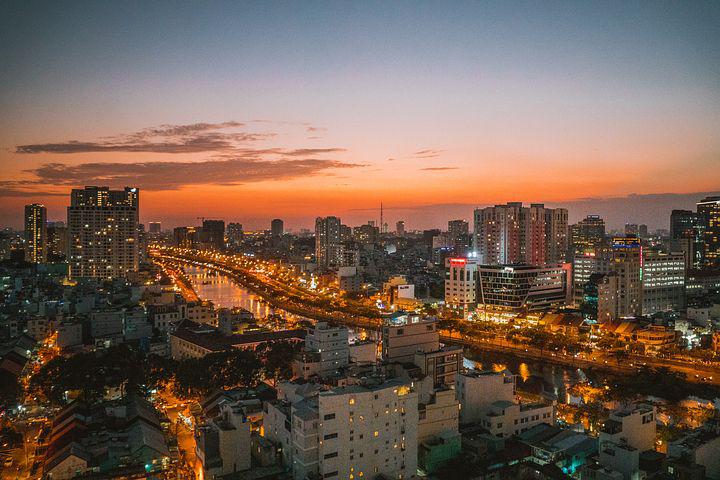
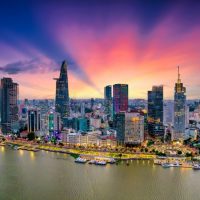
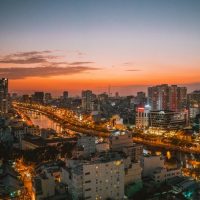
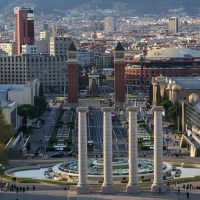

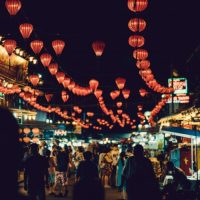
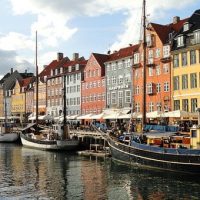





It was a good website for our Vietnamese lesson!